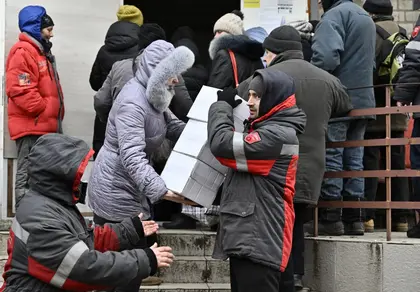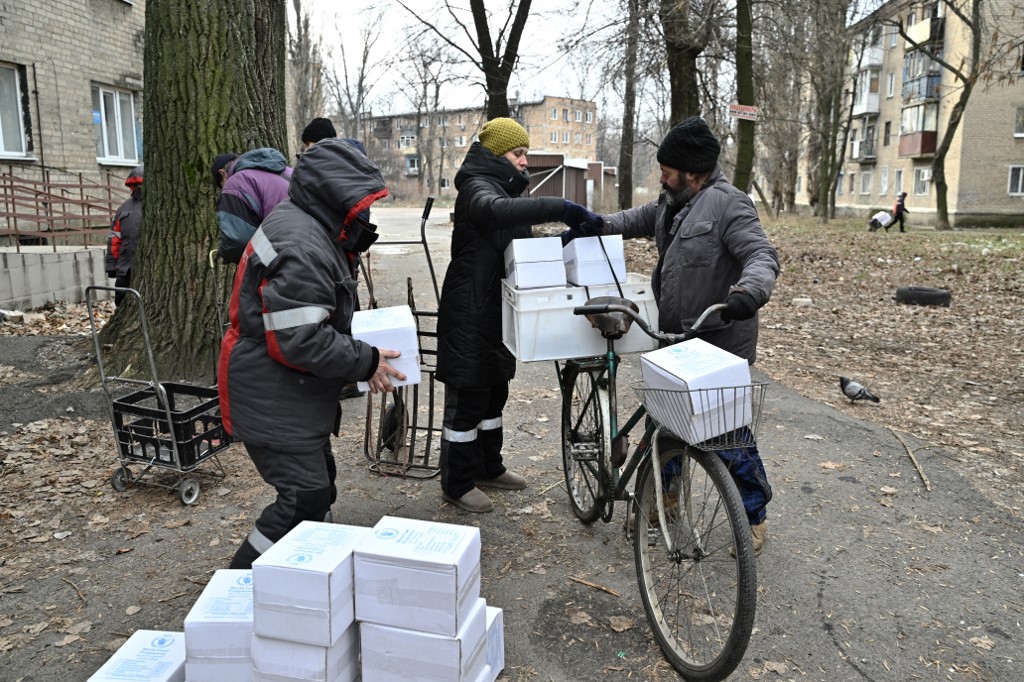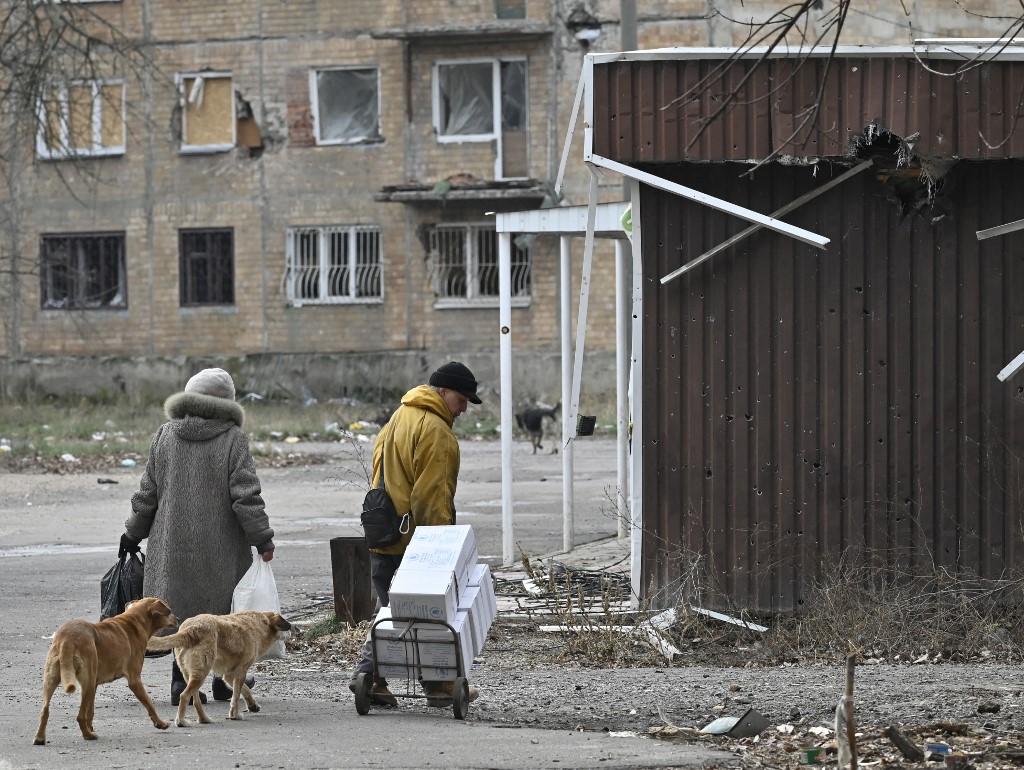Looking pale and exhausted, a dozen of the few remaining residents of Ukraine's frontline town of Avdiivka briefly come out of their shelters to pick up food parcels distributed by volunteers.
They barely flinch at the sound of the constant shelling that echoes across the town just 13 kilometres (8 miles) from the pro-Russian rebel stronghold of Donetsk in eastern Ukraine.
JOIN US ON TELEGRAM
Follow our coverage of the war on the @Kyivpost_official.
Carrying boxes with stamps of the World Food Programme, they slowly retreat to the relative safety of their basements, where they have been sheltering without power, gas or water.
"It's very hard... (Volunteers) have offered for us to leave, to evacuate, but where can we go? We are too old," says 74-year-old Svitlana, who shares a cold basement with five women and two men of a similar age who used to occupy the building above it.
In their basic shelter, thick blankets and sleeping bags donated by volunteers are sprawled across eight beds.
A flashlight secured to the wall emits a pale white gleam -- their only source of light.
"Basements are all the same, but this is our basement. It would be cold now wherever we go," Svitlana tells AFP, wearing a hat and wrapped in a thick winter coat.
"Here, at least, we can go upstairs and grab an extra jacket," she adds.
Just over 2,000 of Avdiivka's 30,000 residents remain in the town nearly 10 months into Russia's invasion of Ukraine.
- Frequent shelling -
The head of the town's military administration, Vitali Barabash, says Avdiivka is under frequent shelling from pro-Russian forces.

Zelensky Meets CIA Director William Burns in Ukraine
"From 7:15 am they started bombarding the old part of town with Grad rockets. At 9:30 there was a strike on the central part using artillery," he says.
"Just seven minutes ago, they started a massive artillery strike, the central part of town again, apartment blocks," he tells AFP in the middle of a cold winter day in mid-December.
Many of Avdiivka's buildings have been damaged, their walls blackened, their windows blown out by the impact.
To the north of the city, a large coke plant which used to employ 4,000 people has been the target of numerous strikes.
Back in the basement of Svitlana's home, a fire crackles inside a wood-fired stove in a small adjoining room.
Mikola pulls out twigs and branches from a small pile of wood to fuel the fire. Two explosions ring out in the distance.
"Who knows what it was. It looked like artillery or maybe mortars," he says.
"Here we keep food, potatoes... If it gets too cold, we will move in here", Mikola adds, referring to the heated room.
For Svitlana, "hope is all we have".
"Most of us are sick, like everyone here -- strokes, the flu, some people get injured," she says.
Located in Ukraine's industrial Donbas region, Avdiivka was briefly captured by Russian-backed separatists in spring 2014 before coming back under Kyiv's control some months later.
It has remained a hotspot of fighting ever since.
- 'All civilians threatened' -
The town has witnessed fierce battles over the past few months, as Russia's forces attempt to advance around Avdiivka and the nearby town of Bakhmut.
North of Avdiivka, Moscow's troops in June cut off one of the two main supply routes to the town.
Russian forces are also positioned to the east and to the south, where they have recently pushed back Ukrainian forces.
"Our troops withdrew from (the village) of Vodyane. They crossed the river because it was absolutely impossible to hold the previous positions which were completely destroyed," Barabash says.
According to him, Moscow has recently redeployed regular troops near Avdiivka that are "better trained" than separatist forces but morale is "high" among Kyiv's soldiers.
"They do not even think of leaving the town," Barabash says.
But Avdiivka police officer Rasim Rustamov says the situation remains "really difficult".
"We are suffering from repeated shelling of the town and surrounding areas. All civilians here are threatened," he tells AFP inside a police station.
Living in the darkness of their basement, Svitlana and her neighbours keep busy by decorating the walls with large colourful collages.
"There was nothing but old brick walls here. Now, you see, step by step, we are decorating the boring grey backdrop," Svitlana says.
"We know how to make it feel like home," she adds.
You can also highlight the text and press Ctrl + Enter








